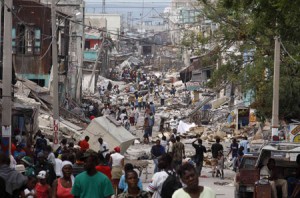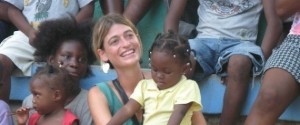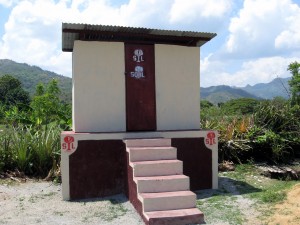Do not let your “waste” go to waste!
HAITI
Most of us remember, back in January 2010, the devastating earthquake occurred in Haiti which caused over 250,000 deaths. Then came the outbreak of cholera, which is an infection of the small intestine that causes severe diarrhea and vomiting. This outbreak is due to lack of sanitation and clean water and has caused over 400,000 Haitians became infected since the natural disaster.
It is not as if Haiti needed the earthquake to gain international attention; it had many problems even before. Two main problems were sanitation and agriculture. Currently, only 16% of rural Haitians and 50% of those in the cities have access to adequate sanitation facilities. Moreover, agricultural output is low due to poor soil fertility, soil erosion and lack of fertilizers.
SOIL – Sustainable Organic Integrated Livelihood
Although it was amazing to see how much international attention Haiti received, there were a group of people long before 2010 that dedicated their hard work in improving the lives of Haitians. Please allow me to introduce the group SOIL – Sustainable Organic Integrated Livelihood.
Sasha Kramer, Executive Director and co-founder of SOIL, has been living and working in Haiti since 2004. She first came to Haiti as a human rights advocate, and in 2006 co-founded SOIL with Sarah Brownell. During that year she also received her Ph.D in Ecology from Stanford University.
Dry Toilet
Together, they have transformed the idea of human waste into something more valuable than gold in Haiti. They started something called “ecological sanitation,” which is a low cost approach to sanitation where human wastes are collected, composted and recycled for use in agriculture and reforestation.
Within the toilet, called dry or composting toilet, the liquid and solid parts are separated. Then after a year of composting, it becomes a nutrient rich fertilizer, which can help the agriculture by doubling the yield. SOIL have already installed more than 50 public ecological toilets for schools and community group across Northern Haiti and they are planning on expanding their project throughout the country
Since the earthquake, Sasha and her team relocated to Port-au-Price to assist in relief efforts there. After weeks of distributing emergency aid, SOIL began to set up an office in Port-au Prince in response to the outbreak of cholera and sanitation crisis.
People like Sasha and organizations like SOIL reminds us two things: one- that one person indeed have the power to make a different, and two- we have all the knowledge and resources to do so. Thanks to their hard work, a country with depleted resources is having a second chance to rebuild themselves through sustainable resources.
More Resources:
The New York Times article :
http://www.nytimes.com/2010/12/02/opinion/02kristof.html?_r=1&ref=nicholasdkristof
Sasha Kramer’s Blog :
http://www.oursoil.org/blogs/sashakramer
References:
“Quake death toll may top 100,000: Haitian PM”. CBC News. January 2010.
http://www.cbc.ca/news/world/story/2010/01/13/haiti-earthquake.html
Sustainable Organic Integrated Livelihoods (SOIL)



October 14th, 2011 at 10:24 pm
There’s still a lot of work to do, but it’s nice to see something positive come out of something so terrible. Is the waste composted on its own or does it need to be combined with other compostables?
October 15th, 2011 at 8:23 pm
This could be incredibly useful in other areas of the world as well. I’m sure this is a concept that if proven efficient and effective could take off in third world countries.
October 15th, 2011 at 11:38 pm
I know that dry toilets exist in a lot of the third world countries. Though they don’t look as nice as the one in your picture.
October 17th, 2011 at 11:36 am
How do people keep dry toilets disinfected?
October 17th, 2011 at 4:57 pm
The idea behind the separating toilet sections is very creative, including making used to feces, urine, or the decomposed fruits. Not everyone would keep their decompose to grow their own plants. Considering the fertility of soil has increased, they can save tremendous amount of money and make their own soil with their own wastes. This way, everyone contributes their part to the process.
October 17th, 2011 at 8:29 pm
It is great to see that people are working hard to come up with ideas that are more than “band-aid” solutions to greater problems in third-world countries. I particularly like the idea that the separated waste can later be used as fertilizer: it goes along with the idea of helping third-world countries help themselves. However, based on the YouTube video, it seems like a far commute from the toilet to agricultural fields – I wonder how feasible, and if the resources are available to transport the fertilizer this distance? Also, how do they plan to distribute the fertilizer evenly to all the fields?